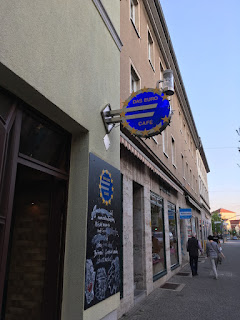 Although one could be excused for thinking that the debates over the upcoming referendum on whether the United Kingdom should remain in the European Union or abandon it—the BREXIT—has been going on for decades, even prior to the Schinnen Agreement or the Maastricht Treaty, the discussion has only official started in the last few weeks, and pending this decision, H and I wanted to explore the south of England, from east to west, before such ventures might prove more of an administrative hardship.
Although one could be excused for thinking that the debates over the upcoming referendum on whether the United Kingdom should remain in the European Union or abandon it—the BREXIT—has been going on for decades, even prior to the Schinnen Agreement or the Maastricht Treaty, the discussion has only official started in the last few weeks, and pending this decision, H and I wanted to explore the south of England, from east to west, before such ventures might prove more of an administrative hardship.Being on the fringes of the EU already with its border controls and separate currency and me holding a wonky status, I suppose it would not directly impact us—I always have to queue up to show my passport and get questioned whether I’m on holiday or on a mission (though on the return ferry, there were a couple of uniformed UK service members and I thought it was a treaty to travel in steerage like that). We saw that especially in the wealthier parts of the westernmost ceremonial counties that the sentiment, as displayed on shrill billboards, was to leave though no one polled us about the matter. Stay tuned for highlights of our travels from Kent to Cornwall and points in between. Let’s hope further adventures are not sullied by politics.


















